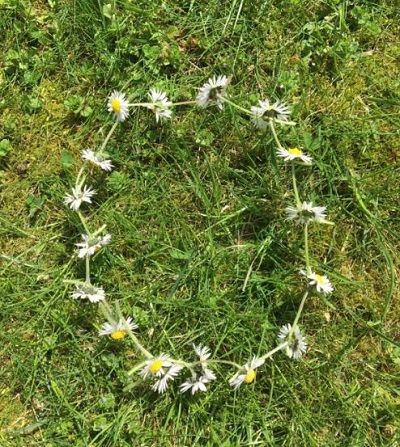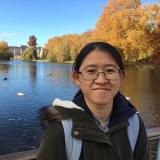Your Research. Your Life. Your Story.
A magnetic community of researchers bound by their stories
Every researcher has a story. What’s yours?
Pursuing research in your native language

Editorial Note: This article was originally written in Korean by Ahn Hee-Kyung on her blog, Life in Green. This translated version has been republished here with her approval.
I am a postdoctoral researcher in J’s group. J is a native of England. He is known for his sense of humor, but it is something I often cannot relate to. I can obviously sense it is witty, but I don't understand why his jokes are funny.
On the eve of the quarterfinal match between England and Sweden for the 2018 World Cup series, our lab had a get-together. J sat next to me and he said, "You know, we've played against Sweden before. We lost 2-1 then. The next day, there was a headline in the newspaper - ‘Swedes 2 Turnips 1’. But there will be a similar title tomorrow, ‘Swedes to Turnips 2!' Hahaha.”
Swedes and turnips are all kinds of radishes which I haven't tried yet and, actually I cannot tell them apart exactly. As "Swede" is the word used to call Swedish people, I can guess it is a metaphor. But why did he describe the British as turnips? Would it be equally funny if I replaced parsnip in place of a turnip? Why is this funny in the first place?
These kinds metaphoric expressions are common with J, who loves humor. During my first lab meeting, he shared his hypothesis about the experiment I was going to do and mentioned a 'daisy chain'. I could only glean a vague idea of what it might mean - something of a round shape - looking at the way he turned his hands round and round. The conversation was over whilst I was wondering whether there is any other meaning to the flower daisy. After about a month, a colleague of mine made a 'daisy chain' for me, which was a crown made of daisies.

[Image source] Ahn Hee-Kyung
When I started my life abroad, in the beginning, I was quite confident in conversing with others. But recently, as I spend more and more time thinking and organizing my words before I speak, I feel my English has reached its limit. Moreover, I cannot endure the awkward moment of silence, so I say whatever that comes out of top of my head. Conversation with people becomes more challenging, making life abroad feel more difficult than in the beginning.
When I demonstrate my research in English
A few days ago, I went to a pharmacy to buy “fever reducer” but could not come up with this English word, so just asked them for a “fever down medicine”. I will expand my vocabulary as I encounter new words. I just have not encountered some words yet. But what is more challenging is when I have to convey my thoughts and ideas about research and experiments. Usually, there is always more than one possibility in a result of an experiment. When I try to explain in English, some parts go missing, or I find the explanation insufficient. To fill up these gaps, my presentation slides are gradually filled up with more and more words.
The other day, a Korean professor who had worked in my lab visited here. As a legendary figure from this laboratory, I had heard many stories about him from other colleagues. I requested him to have an individual meeting to present my research. I was eager to explain my project and ask a lot to him, even though the experimental results I had were inconclusive and had weak supporting evidence.
I cannot remember how the meeting went, since it was soon over. I began the presentation very carefully, but soon I demonstrated a lot about my work with additional explanations which was not prepared in advance. It was great to be able to deliver various possible conclusions and new hypotheses even from experimental results that were unexpected. It felt like a heavy burden had been lifted off my chest.
It seems an unfair game
I agree it is necessary to have a universal language to share new scientific discoveries immediately. In a world where research results are shared in real-time by publishing papers through various outlets such as in preprint servers, a common language is all the more necessary. Since science can move forward only by sharing research findings with more and more people, it is crucial to have a system that enables the sharing of research findings immediately. In this regard, I sometimes feel it is an unfair game for researchers who are non-native English speakers. People whose native language is English will be in an advantaged since they can access information immediately without having to filter it through another language.
Although I had international experience and gained proficiency in English at a young age my skills have not improved much since my teenage years. Therefore, my English ability is insufficient to explain something complicated such as experiments with many variables. Also, as I build intimacy with my colleagues, I share more of my daily life with them. But I experience a limitation in my vocabulary when it comes to talking with them. Just yesterday, I was talking with my colleague and I wanted to express how afraid I was at the time of giving birth, but I could not find appropriate English words to communicate my thoughts.
However, at the same time, I found out that the incompetent feeling I had towards conducting my research was not simply due to the lack of fluency in English. The conversation with the Korean professor left me a big question in my mind; what is the ultimate discovery I want to make from these experiments? This unknown thirst still haunts my mind. What is missing? This is the question that I must explore.
Comments
You're looking to give wings to your academic career and publication journey. We like that!
Why don't we give you complete access! Create a free account and get unlimited access to all resources & a vibrant researcher community.

Your Research. Your Life. Your Story.
A magnetic community of researchers bound by their stories






